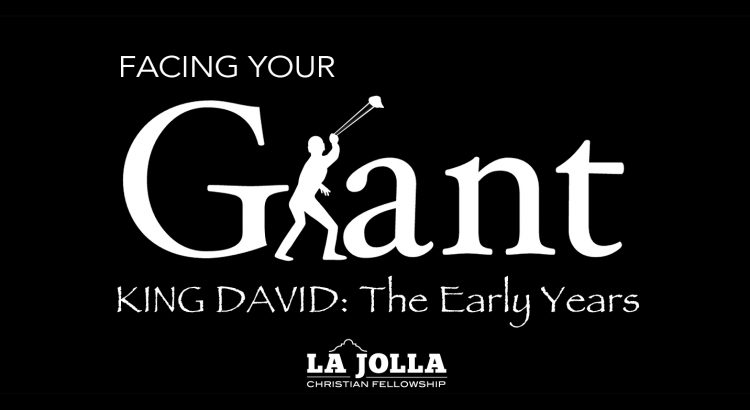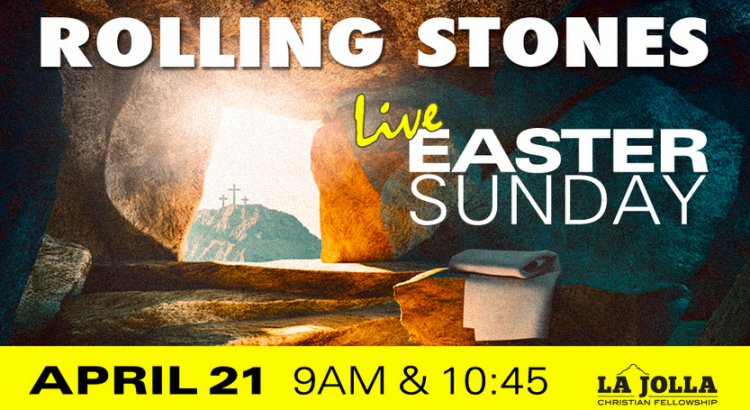Easter Sunday Sermon. Rolling Stones. Mark 16:1-9. Often, just a few key events will shape the trajectory of your life. Many of these expose a stone and a tomb – addiction, sin, health or money issues. Maybe you need a miracle to roll away the stone and escape your tomb. The miracle of Easter shows us how the faith-filled life NEVER asks that you move your own stones. When was your last miracle?
Tag: faith

Easter Sunday. Looking for Life. Luke 24:1-12.
Easter Sunday. Looking for Life. Luke 24:1-12. The Bible is filled with some of the greatest questions ever asked. One of the most important happened on the day of Jesus’ Resurrection – Why do you look for the living among the dead? Life is the premier value of Christ following and the foundation for all other of its values. Where are you looking for life? It is God’s passion to bring life to the dead areas of your existence. Jesus is rarely found where you look for Him.

The Art Of Invitation: Evangelism or simple invitation? Matthew 22:14.
Matthew 22:14. This is a parable meant to show contrast and teach, but perhaps not to call us towards absolutes. The scene is a wedding feast for a king’s son. Servants are sent to do the work of invitation. Evangelism or Christ telling is the art of invitation.

The Giant Series: Saul has a timing issue
God’s timing can be one of the biggest giants that we face. Many of us find it hard to wait without taking control of our lives rather than being patient for God to act. In this message, we look at Saul’s attempt to please and appease God by an act that turns out to be disobedient and in the end ultimately rips the kingdom from Saul’s hand. How are you doing with God’s timing?

Human Secularism Pt. 2: God is love, but love is not God
The temptation to supplant God’s will for mankind’s changing desires has always been the ultimate temptation. Today we are seeing the full expression of that being foisted upon our culture. Secular religion tells us that Love is God and that sin no longer exist. In this message we break that down and look at what it means to be holy.

Rooted Series Episode 2
Episode two of the Rooted Series takes us back to the beginning of time and to a time before time. It is here, outside of the created order that God took the raw material of His very nature and cast it like a living dye into the creation. This understanding is a building block for those determining to live a faith-based and faith-filled life. Take a listen and discover perhaps a new cornerstone to your faith as we week to re-frame our lives into a living adventure.

Finding The Perfectly Imperfect Church
I sat there waiting for the Executive Pastor to show up. He was twenty-five minutes late. I had been asked to interview for the newly created Campus Pastor position at this well known and highly effective Orange County megachurch.
The lobby was bustling and the waiting easy. There were plenty flat-screens on the walls pumping out the latest worship gigs, a Keurig station offering dark bold Sumatran, free wifi, leather couches and interior decor that coagulated the best of surf hipster, New York chic and rustic farm house. Stunning. Unfortunately, the few people hustling by did not seem to notice.
As I sat there in opulent comfort, my mind flashed back to a church meeting I had attended in Thailand a decade earlier. The coffee was instant, the floor seating hard and the only decor a faded picture of a brown eyed Jesus hanging on the cross. The spirit of peace in that place was tangible. It was as if no one was trying. I mean that in the best of lights.
The executive pastor arrived with lavish apologies for his tardiness. A radio interview had gone long. He was likable, focused and obviously loved Jesus. Under his arm was a copy of Fast Company magazine. He told me to wait another five minutes and that his assistant would come out and collect me for the meeting. I was offered another coffee. For me, the interview had already ended. I knew we were headed to the same destination, but on different paths.
If there is one thing I have learned in twenty-plus years of leading in churches is that you can buy church. Check that. You can buy or create a church experience for your community that will offer them the temptation to think that this church has it all together. It’s also a great growth strategy, as it allows people to check the box of being part of something that is effective and meaningful.
As a pastor of a small local church and having just come out of 10 years ministering in a mega church setting, I feel the pressure to create a “Fast Church”, one with all the modern bells and whistles, singing the latest anthems and offering clean efficient systems to organize people around legitimate spiritual causes.
The problem that I face, is that if I went after that, it would not be long before I was the wizard behind the curtain offering up an illusion of spiritual perfection that would not only be soul killing for me, but also for those I lead.
It’s one thing to talk about messy churches and lives from the pulpit, but it’s quite another to actually allow that messiness to be part of your church staff, volunteer base or even organizational systems.
What I often see are churches that preach and sing about brokenness and authenticity, but then go out and try to create a church image and culture that presents modern ideals of perfectionism. Here is what I mean. Would you allow a seriously obese person to be your door greeters? Can we allow someone to stay on staff who is not reaching their targets and goals for one reason or another believing that sometimes God cares more about your staff as individuals then what they can produce. Can someone be on the worship team that occasionally sings flat and do heads roll if the sound or PowerPoint is not run with Spielberg perfection?
I believe that when we present authenticity and imperfection from the stage but don’t allow that to play itself out in the ebb and flow of our church matrix’s and social systems, we are actually creating a culture that never let’s people truly be free. In fact it heaps unseen heavy burdens on their heads.
No, I am not advocating a sloppy church. Being an A Type control junkie, it pains me to be patient as God grows those I lead. I see every perceived misstep, off note and occasional unedited promotional piece. The thing is that deep down, my desire to present the perfect church has more to do with how I want people to perceive me then trying to offer them a savior who brought a casual perfection, but never demanded it in return.
The Noah Factor: Following God When Everyone Says You’re Wrong
 The Noah factor is when everyone tells you that what you are doing is crazy and insensible, but you go ahead and do it anyway. If you follow God long enough, you will probably have to employ the Noah factor at some point.
The Noah factor is when everyone tells you that what you are doing is crazy and insensible, but you go ahead and do it anyway. If you follow God long enough, you will probably have to employ the Noah factor at some point.
Jesus used the Noah factor when he went to the cross. Noah used it when he built his ark on dry ground and in a land that had never seen rain. Ultimately, Jesus and Noah knew something in the depths of their hearts that eluded all others. Like the couple Karie and I had coffee with this morning. They adopted a son from the Ukraine. No big deal, lots of people do that—but how many go through with it when seven days before they are set to get their son, the wife is diagnosed with an aggressive form of cancer and given months to live?
Karie and I sat amazed as we heard the story. It’s now five years after the fact and with the cancer in remission and a 9-year-old adopted son part of their family. At the time everything and everyone told them not to go through with it. Both sets of their parents were adamant and a best friend angry. To do this would be unwise and going against the counsel of their trusted inner-circle. But like Noah, who was the only one that saw a flood coming coming, our friends saw and heard something in the quiet of their souls that said, “Go, go get your boy, the cancer can wait.”
This is the rub of following Jesus. Yes, we are called to live and hear in community, but at the end of the day we serve a personal Jesus; a Jesus who at some point in your life might challenge you to follow him where no one else is going and when everyone else sees it a different way.
This is faith you have signed up for, and unlike a good business plan, faith does not always pencil out.
Peter’s Sword
John 18:10 Then Simon Peter, who had a sword, drew it and struck the high priest’s servant, cutting off his right ear. (The servant’s name was Malchus.)
Why was Peter carrying a sword on the night that Jesus was betrayed? Where did he get it? Did he tell Jesus he had it or was he hiding it from him? What did he think was going to happen that he might need a sword? One thing you can be sure after reading John 18 is that he was not afraid to use it.
The other thing that intrigues me in this passage is Peter’s abrupt turn around after discovering that the plans he had for the future were obviously not Christ plans. One minute Peter is brandishing a sword in a spirit of courageous rage and the next he is calling down curses on himself to attest the fact that he never knew Jesus.
So what happened? The simple fact is that Peter had created a Christ that did not exist. Peter had done what so many of us do. Peter had picked out what he wanted of Jesus and left the rest. Peter had heard what he wanted to hear. He had chosen a sword when the way of Christ was a cup.
Luke 22:42 saying, “Father, if You are willing, remove this cup from Me; yet not My will, but Yours be done.”
I think that this is such a powerful message for us. Peter’s courageous faith was built on a lie. When considering this passage we must ask ourselves if we have done the same thing? Are there areas in our life where we have fashioned a Christ of our own understanding? We must always remember that Jesus is who he said he is, not who we always want him to be.
When thinking about Peter’s lie, we need to keep in mind the substance of all lies. Lies are always based on the truth. It is impossible for lies to subsist apart from the truth. In contrast, truth can stand independently. In this way, truth stakes a claim of dominance over deception.
One of the primary tools of the Devil is to get us as believers to buy into an aspect of the truth but then disorganize that truth so that it becomes a lie. When Peter realized that his faith in a rebellious and conquering Jesus was unfounded his knees became weak.
The truth in Peter’s lie was that Jesus had come to establish a new kingdom. While this kingdom would one day lay claim to the temporal, it was based in the eternal and had more important matters at hand then restoring Jerusalem. This is where Peter’s understanding failed him. This is also the place where Peter lost his faith.
As a believer I constantly need to allow the Holy Spirit to search me and purify the areas in my heart and mind where my picture and hope in Jesus do not stand up to scripture. The temptation to build a Jesus of our own understanding is strong, but in the end it is really a form of an idol. Unfortunately, too many of us continue to defend these images with a sword when God is asking us to drink of his cup. May we put down our swords that we might never lose our faith.

